Ever caught yourself wondering if giving up alcohol means giving up fun, friends, or even a part of who you are? You’re not alone. The chatter around sobriety is full of half‑truths and outright myths that can keep anyone stuck in a cycle of doubt. The good news? Most of those stories are just that—stories. In the next few minutes we’ll pull apart the most common sobriety myths, shine a light on the genuine sobriety benefits, and give you real‑world tips for thriving in an alcohol‑free lifestyle. Grab a cup of tea (or a mocktail) and let’s dive in together.
Top Sobriety Myths
Myth #1: Sobriety is boring
It’s easy to picture a life without drinks as a perpetual “Netflix‑and‑chill” marathon. But boredom is a perception, not a reality. A recent Healthline article (2025) shares a story from a woman who tried dog‑sledding in Norway after she quit drinking. She said the experience felt richer because she wasn’t fogged by alcohol—she remembered every sway, every laugh, every breath of cold air. In short, sobriety often amplifies the colors of life, not mute them.
Myth #2: You can’t have fun without alcohol
Fun isn’t a drink; it’s a feeling. When you’re sober, you can enjoy activities fully because nothing clouds your senses. Below is a quick comparison of “drinks‑focused fun” vs. “sober‑focused fun.”
| Aspect | Drinks‑Focused | Sober‑Focused |
|---|---|---|
| Memory | Foggy, fragmented | Clear, vivid |
| Energy | Crash after buzz | Steady, sustainable |
| Cost | High (bars, bottles) | Low (mocktails, activities) |
| Social Connection | Surface‑level chat | Deeper, authentic conversations |
Myth #3: Alcohol relieves stress
Many of us have reached for a glass after a tough day, believing it’s a quick fix. Science says otherwise. A study from Through the Glass Recovery found that while alcohol may momentarily dull anxiety, it actually spikes cortisol (the stress hormone) later on. In practice, you end up trading one stressor for another. Real stress relief lives in movement, breathing, and connection—not in a bottle.
Myty #4: Sobriety kills your social life
Picture a friend who always orders a drink at every gathering. Now imagine they start saying “no thanks, I’m good with soda.” You might worry they’ll be left out. The opposite usually happens. According to Mountain Laurel Recovery, people who quit drinking often discover new circles—fitness groups, hobby clubs, and sober meet‑ups—where they feel more seen and less judged. Your social calendar can actually expand when you trade “drinks‑with‑strangers” for “activities‑with‑people‑who‑share‑your‑values.”
Myth #5: Only “alcoholics” need to quit
Alcohol Use Disorder (AUD) exists on a spectrum—from mild to severe. The Diagnostic and Statistical Manual of Mental Disorders (DSM‑5) labels even a few risky drinks per week as “mild AUD.” In plain language: many of us who enjoy a glass now and then still qualify for a pattern that could become problematic. The key isn’t a label; it’s the impact on health, relationships, and daily functioning.
Myth #6: You’ll be haunted by cravings forever
Cravings are real, but they’re not permanent. Brain chemistry reboots after a few weeks. Most people report a sharp drop in urges after 2‑4 weeks of consistent sobriety. Occasional triggers—like passing a bar—can spark a thought, but you now have tools (deep breathing, a supportive friend, a distraction) to let that thought drift away.
Myth #7: You have to call yourself an alcoholic
Labels can feel limiting. As Karolina Rzadkowolska writes on EuphoricAF, “labels are for folders, not multidimensional human beings.” You can simply say, “I’m choosing an alcohol‑free lifestyle.” It’s a decision, not a diagnosis, and it frees you to focus on growth instead of identity.
Myth #8: You can’t succeed at work without a drink
Corporate cultures sometimes equate a glass of wine with networking. The same Healthline piece notes that sober professionals often display sharper decision‑making, better memory during meetings, and higher productivity. Confidence grows when you’re not wondering whether you should reach for the bar tab instead of the notebook.
Sobriety Benefits
Physical health gains
Skipping alcohol lowers your risk for several cancers (breast, colon, throat), reduces blood pressure, and gives your liver a break. According to the CDC, adults who drink heavily have a 30% higher chance of heart disease. Those numbers shrink dramatically when alcohol is removed from the diet.
Mental and emotional wellbeing
Alcohol is a depressant; it can deepen anxiety and mood swings. When you stop drinking, neurotransmitter balance begins to normalize, leading to clearer thinking, steadier emotions, and better sleep. A personal anecdote: a friend who switched to a nightly routine of reading and light stretching reported feeling “more like herself” within a month.
Financial savings
Think about the average cost of a night out—$30‑$50 per person, plus hidden expenses (taxi, hangover remedies). Over a year, that adds up to $1,500‑$2,500 saved. That money can fund a weekend getaway, a new hobby, or simply pad your savings account.
Improved relationships
When you’re sober, you’re fully present. Conversations become deeper because you’re listening, not waiting for your turn to talk after a sip. Many who quit report stronger bonds with family and friends who appreciate the authenticity.
Greater productivity & focus
Without alcohol’s after‑effects (headaches, brain fog), you can tackle work tasks with sharper focus. A 2024 Harvard Business Review article highlighted that employees who practiced regular sobriety showed a 12% increase in project completion rates.
Authentic enjoyment & memory
Remember that amazing hike you took last summer? If you’d been drinking, the vistas would be a blur. Sobriety lets you store those moments like photos in a high‑resolution album, not a grainy VHS tape.
Social Strategies
Choosing non‑alcoholic drinks
Mocktails have come a long way—think fresh herbs, citrus, sparkling water, and a splash of bitters. Beware of sugary pre‑made mixes; they can sneak in extra calories. A simple recipe: muddle cucumber and mint, add lime juice, top with soda water, and garnish with a rosemary sprig.
Handling peer pressure
Practice a few go‑to lines: “I’m on an alcohol‑free journey,” or “I’m trying a new health routine.” The more comfortable you sound, the less pushback you’ll get. Body language matters too—holding a glass of water signals confidence.
Finding sober‑friendly events
Apps like Meetup, Sober Social, and local community boards list gatherings that focus on activities rather than drinks. From board‑game nights to sunrise yoga, the options are endless.
Communicating your choice
When a host offers a drink, a friendly “Thanks, I’m good with a soda” usually does the trick. If curiosity spikes, share a quick fact—”Did you know mocktails can be just as festive and way healthier?”—and you become an informal ambassador.
Setting boundaries at work
Corporate events often feature a “wine‑and‑cheese” spread. You can order a sparkling water or a non‑alcoholic cocktail and still network. If you’re asked why, a simple “I’m focusing on my health right now” is both honest and professional.
Common Pitfalls
Feeling you’re missing the buzz
The brain’s dopamine pathways need time to recalibrate. In the first two weeks you might notice a “flat” feeling, but that’s the withdrawal of alcohol’s artificial high. After the reset, natural pleasures (exercise, creativity, connection) become more rewarding.
Perceived deprivation at parties
Bring your own mocktail or a favorite non‑alcoholic beverage. Focus on the people, not the glass. Studies show that the act of sipping something flavorful can satisfy the ritual without the alcohol.
Friends think you’re “weird”
Change can be unsettling for anyone. Share your positive experiences—better sleep, clearer mind, extra cash. Most friends adapt and may even start asking for your mocktail recipes.
Relapse triggers
Identify high‑risk moments (after a stressful meeting, at a birthday party). Have a plan: call a supportive buddy, step outside for fresh air, or practice a grounding technique. Write these strategies down—you’ll thank yourself later.
Feeling isolated
Isolation is a common fear, but you’re not alone. Online podcasts such as the “Hello Someday Coaching” interview discuss how community support transforms the sober journey. Join a forum, a local group, or a weekly virtual check‑in.
30‑Day Action Plan
Days 1‑7: Set Foundations
• Write down your personal “why” on a sticky note and place it where you’ll see it daily.
• Remove all alcoholic beverages from your home.
• Choose a daily non‑alcoholic starter drink that you actually enjoy.
Days 8‑14: Build New Routines
• Schedule at least two sober activities (a walk, a new hobby, a cooking class).
• Identify moments when you’d usually reach for a drink and script a healthier response.
Days 15‑21: Social Strategy
• Attend one sober‑friendly event or bring a mocktail to a regular gathering.
• Practice your “I’m choosing an alcohol‑free lifestyle” line with a trusted friend.
Days 22‑30: Review & Adjust
• Track sleep quality, mood, and any savings in a simple spreadsheet.
• Celebrate any win, however small—a night of clear conversation, an extra $20 in your pocket.
• Set a goal for the next month: perhaps a longer hike, a new book, or a deeper connection with a friend.
Conclusion
All those stories you’ve heard about sobriety being dull, lonely, or impossible? They’re just myths—persistent, but false. The real picture is far richer: clearer memories, healthier bodies, deeper relationships, and a lifestyle that feels genuinely fun. Whether you’re testing the waters for a few weeks or committing to a lifelong change, you now have the facts, the benefits, and a practical roadmap to move forward.
What’s one myth you’ve believed the longest? Share it in the comments, or let us know which part of the 30‑day plan resonates most with you. Your experience might just be the spark someone else needs to start their own sober adventure.

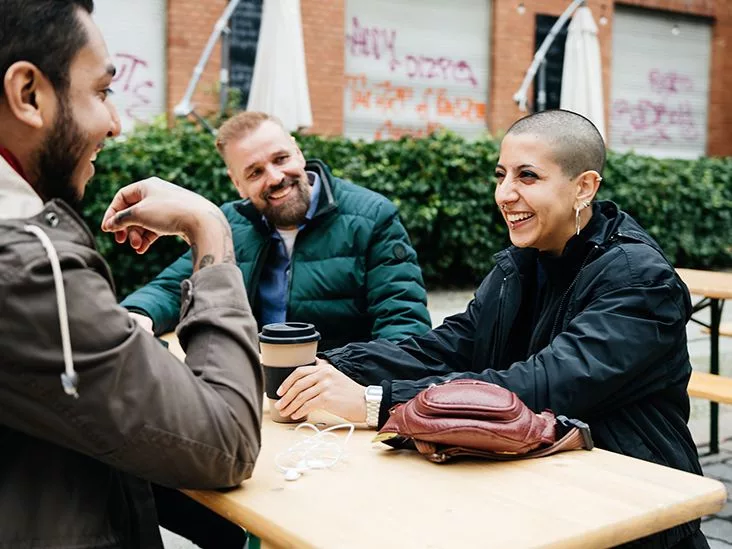
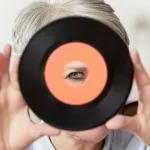

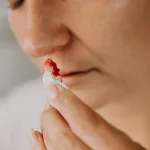



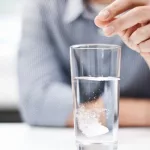






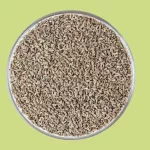


Leave a Reply
You must be logged in to post a comment.